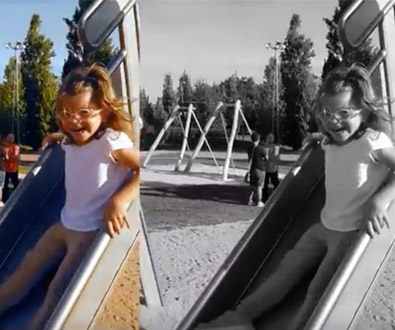
2016年12月1日
Imagine being a parent of a child with a rare undiagnosed disease. You watch your child suffer through poking and prodding, but the seemingly endless testing doesn’t yield an answer. You don’t know how to help. You wonder what life has in store for your child. Will they be able to walk? Talk? Feed themselves? Will they live past age five? How do you plan for the future?
This life of questions led five year old Dana’s parents to move from their home in Venezuela to Spain in hopes of finding an answer and a treatment for their daughter. With help from the Rare Genomics Institute, Illumina sequenced Dana’s genome and she was diagnosed with a Phosphofurin acidic cluster sorting protein 1 (PACS-1) related syndrome. The diagnosis ended her family’s struggle to find out what was wrong with their daughter and enabled them to focus on her treatment.
Watch Rare Genomics Institute’s video to learn more about Dana’s story.
Today, Illumina announced the iHope Program, a philanthropic initiative aimed at identifying the genetic causes of undiagnosed rare diseases in children. Through partnerships with Foundation for the Children of the Californias, Rare Genomics Institute, and UCSF Benioff Children’s Hospital San Francisco, Illumina will sequence the genomes of nearly 100 patients and their parents. These institutions will select patients in financial need with undiagnosed diseases believed to be genetic in origin. These children and their parents will receive clinical whole-genome sequencing performed by Illumina Clinical Services Laboratory, which is certified under the Clinical Laboratories Improvements Amendments (CLIA) and accredited by the College of American Pathologists (CAP).


